Progressive Muscle Relaxation could be the secret to better sleep and less stress — here's how it works
Plus 6 steps to try it for yourself
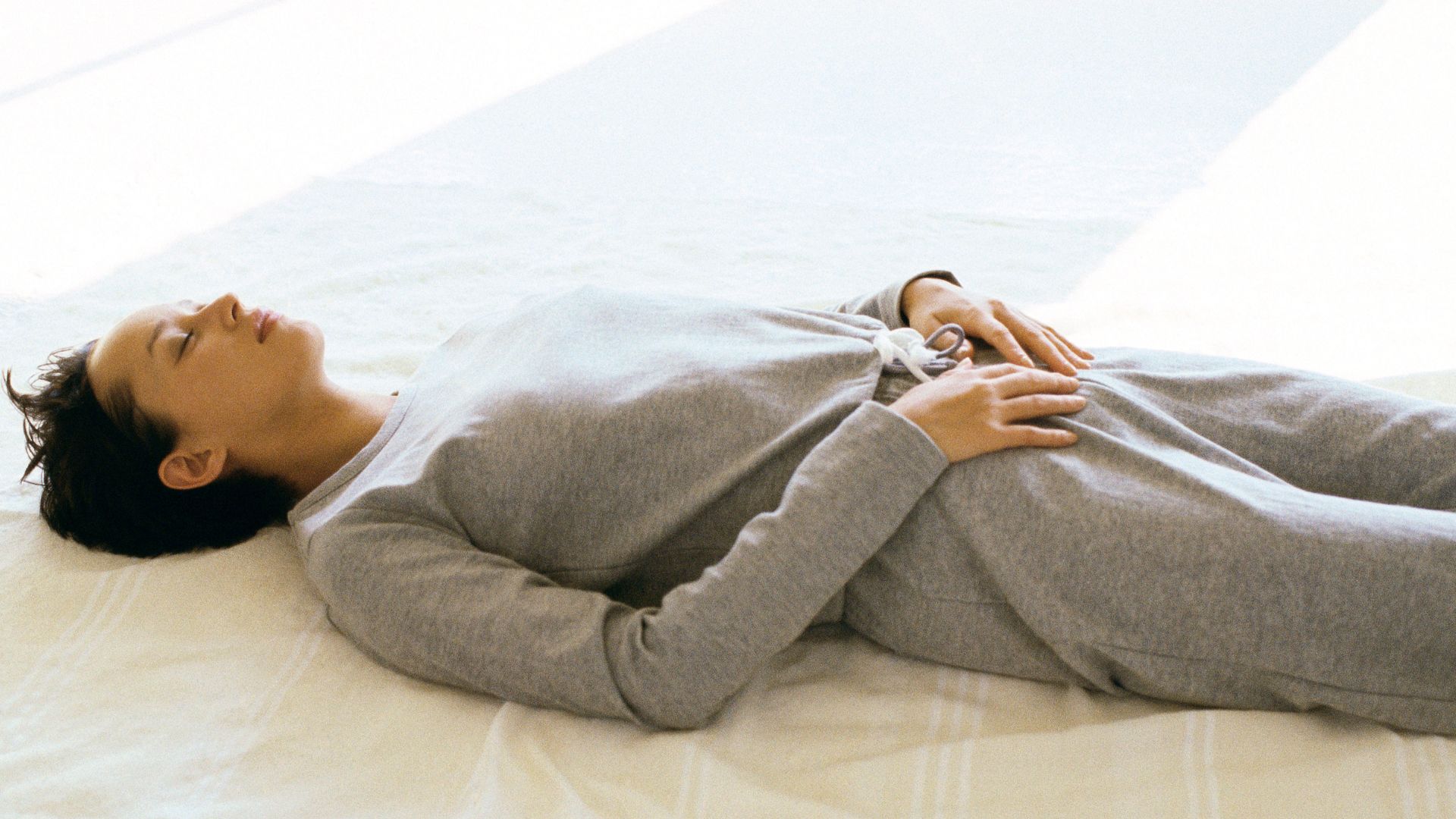
Many people struggle to get to sleep in the fall and winter as the shorter days and colder temperatures can play havoc with our body clock.
This can interfere with sleep patterns and even cause a type of depression called Seasonal Affective Disorder (SAD). The good news is, there's an almost century old technique that can help you drop off: Progressive Muscle Relaxation.
With the help of NHS GP and resident sleep expert at Time4Sleep, Dr Hana Patel, we're going to explore what exactly Progressive Muscle Relaxation is, how it works to tackle sleep issues and how you can practise it at home tonight.

Dr Patel works as an NHS and private GP specialist in mental health and sleep, supporting patients struggling with sleep-related health issues, having previously provided commentary on a range of sleep-related topics using her expertise.
What is progressive muscle relaxation for sleep?
“Progressive muscle relaxation is a deep relaxation technique that’s often used to help relieve stress, anxiety, and insomnia," says Dr. Patel.
"Essentially, you practice tensing different muscle groups one at a time before then releasing that tension."
Focusing on the sensations of tension and release brings about an awareness of your physical body, which in turn helps to calm your mind, helping you drop into a mindset where you can fall asleep faster and easier.
Progressive Muscle Relaxation was initially developed in the early 20th century in the US by physician Edmund Jacobson
"It was initially developed in the early 20th century in the US by physician Edmund Jacobson, who believed stress and anxiety were linked to muscle tension," Dr. Patel explains.
Get instant access to breaking news, the hottest reviews, great deals and helpful tips.
Dr. Jacobson observed that intentionally tensing and relaxing 14 different muscle groups in the body could induce a state of deep relaxation.
This technique isn’t just good for helping you to get to sleep — it also helps relieve tension within the body, and activates the ‘rest and digest’ part of the nervous system to reduce mental overwhelm.
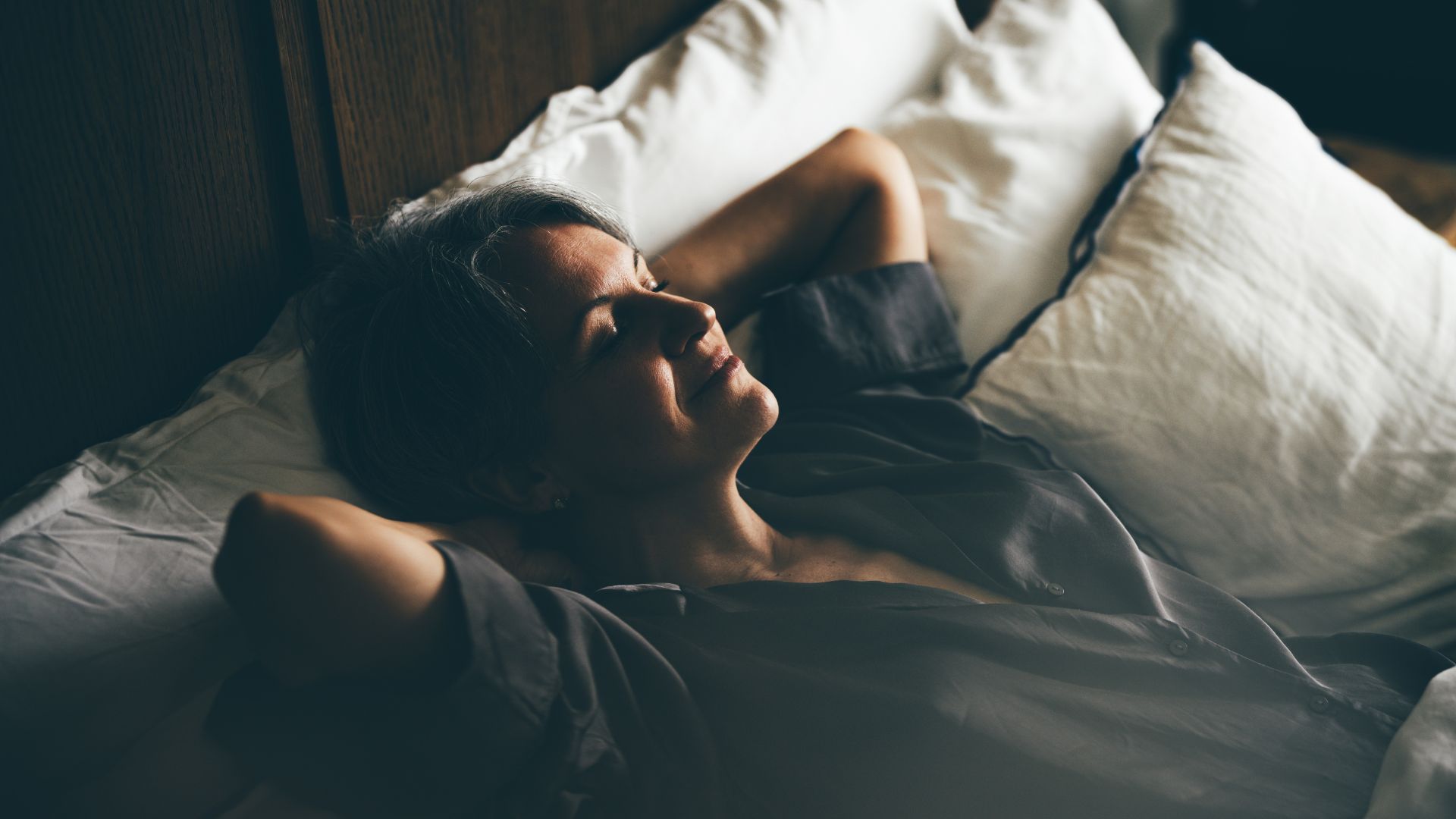
How to use progressive muscle relaxation for sleep
Everyone can benefit from Progressive Muscle Relaxation, especially as stress can often negatively impact sleep without you realizing. You can practice it anywhere and there are no strict rules to follow. Instead, focus on what feels comfortable and enables you to relax fully.
Below is an outline of how to use Progressive Muscle Relaxation to get to sleep, and there are guided exercises on TikTok, Instagram and YouTube, and on wellness apps such as Headspace and Calm.
Here's how to use Progressive Muscle Relaxation for sleep:
1. Lie down in a quiet room, dimly lit room, you may just want to get into bed and get comfortable.
2. Focus on your breathing, taking long, slow breathes in through the nose so that you feel it in your stomach.
3. You’re then going to focus on just one area of your body at a time. So start by tensing one set of muscles as you inhale slowly. You may want to start with your feet, so lift your toes upward, hold for at least 5 seconds.
4. Then release, breathing out as you do so.
5. Let your muscles fully relax for at least 10 to 20 seconds and pay attention to how your muscles feel before and after.
6. Next move on to the next muscle group, if you started with your feet, that’ll be your calves but the order in which you do it is up to you.
How does progressive muscle relaxation for sleep work?
“Progressive muscle relaxation helps to maintain restorative sleep quality through tensing and releasing muscles, and slow breathing and mindfulness," explains Dr. Patel.
These three elements work together to calm you mentally and physically, with the sleep doctor explaining that the primary act of tensing and then relaxing the muscles “allows the body to maintain a lower heart rate and blood pressure. This helps you unwind before bed and get a better night’s sleep."
This can counteract stress and anxiety, helping to prepare your body for sleep
Slow, deep breathing also "stimulates the vagus nerve, also lowering heart rate and blood pressure, as well as cortisol. This can counteract stress and anxiety, helping to prepare your body for sleep," she adds.
Progressive muscle relaxation also involves an element of mindfulness. According to the mental health charity Mind, mindfulness involves focusing on the present moment and "away from other thoughts." This can be particularly useful if anxious, racing thoughts are distracting you from sleep.
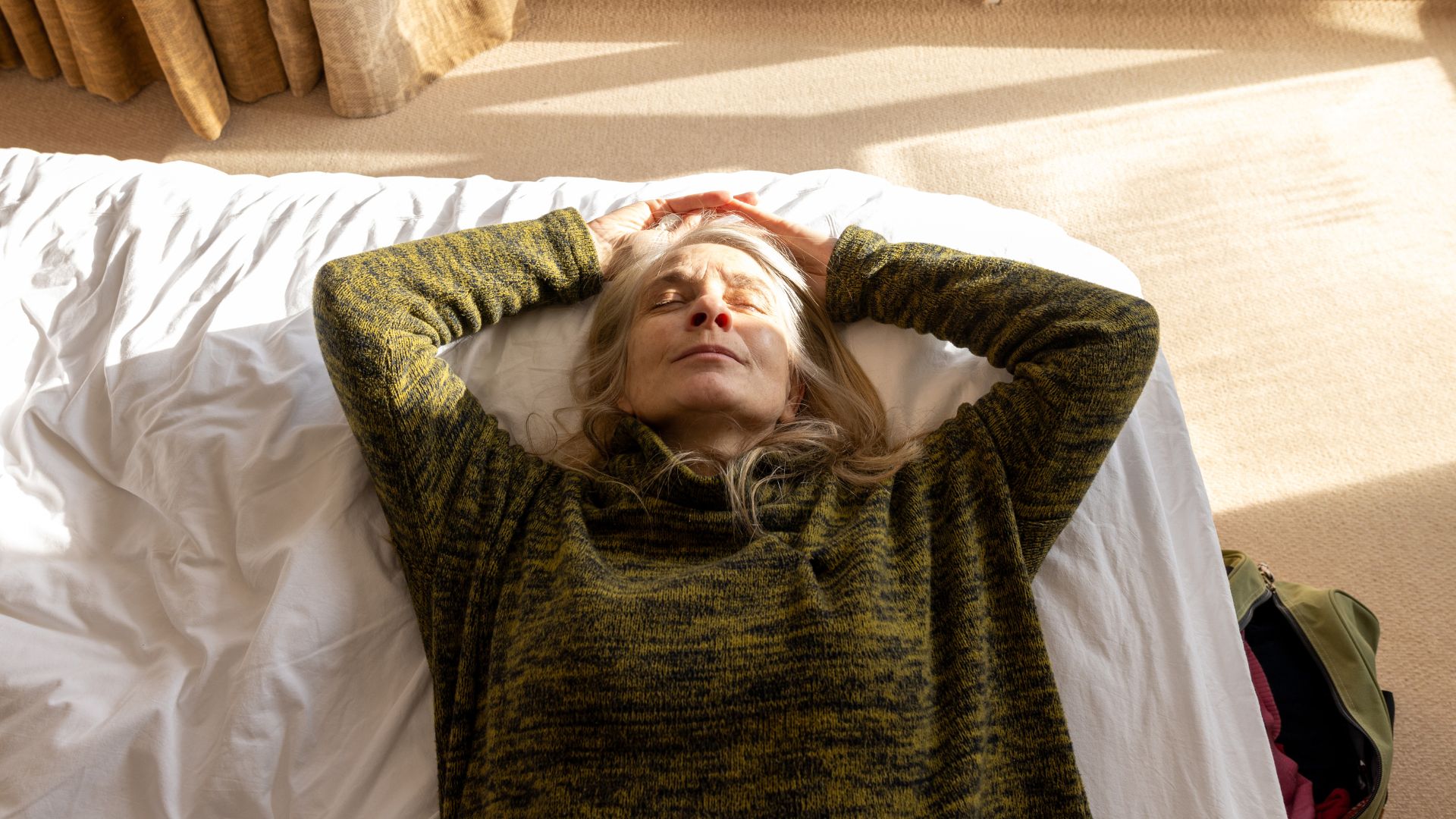
Dr. Patel says she often recommends Progressive Muscle Relaxation for those with insomnia, "to help diminish stress and tension in the body and help sleep."
Another benefit of this technique, she explains, is that it can help increase the amount of time spent in the restorative deep (or slow wave) sleep stage.
"This happens because with more relaxed muscles, the body can more easily fall and maintain deeper stages of sleep. These stages are particularly important for physical recovery and cognitive function," the doctor adds.
How does stress affect sleep?
“High levels of stress can disrupt our circadian rhythms. Mental and physical strain in our day-to-day lives can keep our minds active at night, making it harder to fall asleep, so it can help to develop a healthy and relaxing night-time routine," explains Dr. Patel.
When we're stressed, our bodies activate "the sympathetic nervous system, also known as the fight-or-flight response, which increases things like your heart rate, muscle tension, blood pressure, and adrenaline," she adds.
Progressive muscle relaxation can directly counteract [stress] by stimulating the parasympathetic nervous system.
Stress also heightens overthinking and can lead to racing thoughts, effectively stopping your brain from entering a state conducive to sleep. Stress can also causes frequent night wakings.
"Progressive muscle relaxation can directly counteract this by stimulating the parasympathetic nervous system. This plays a central role in helping us fall asleep," Dr. Patel says.
As such, Progressive Muscle Relaxation can help you get a good night’s sleep if you’re stressed, because it can help relax tight muscles and quiet your mind, helping you to feel calm enough to fall asleep.
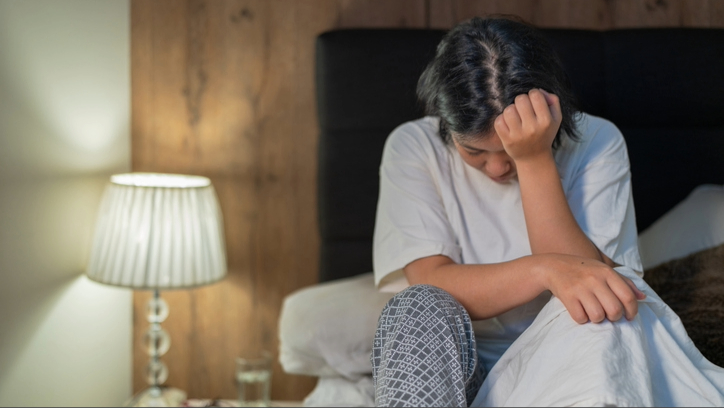
Alternative sleep methods to try
“Like many sleep methods, whilst there is plenty of evidence for progressive muscle relaxation helping sleep, it doesn’t work equally well for everyone," Dr. Patel explains.
"If someone is less aware of the difference between tension and relaxation, the relaxation effects might be limited, and people may feel like it isn’t working effectively for them," she adds.
“For people with severe anxiety or panic disorder, tensing their muscles may cause them to feel more uneasy if they are hyperfocused on bodily sensations. Deep breathing techniques can be more useful in this instance.”
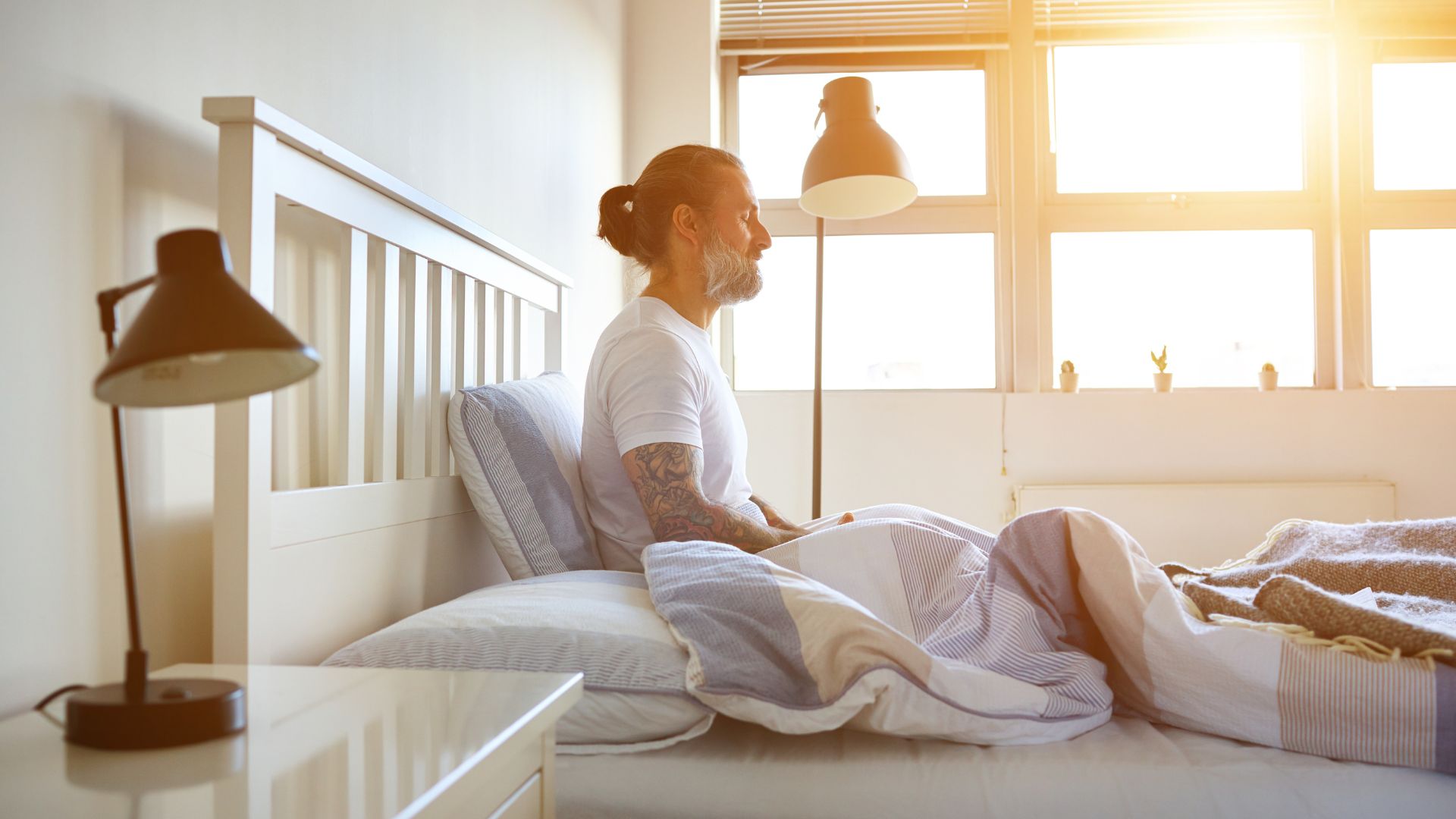
However, there are a host of other techniques, including several deep breathing techniques, you can try before bed.
- Cognitive shuffling: A process where you 'scramble' your thoughts by visualizing random words and objects, until your brain stops trying to make sense of them and 'switches off' so you can fall asleep more easily.
- Military Sleep method: First used to help soldiers fall asleep easily in high-stress environments, this technique combines muscle relaxation, visualization and deep breathing to induce sleep.
- 4-7-8 breathing: A form of 'conscious breathing' that relaxes you by using a combination of nasal and mouth breathing as you focus on counting during the in and out breaths, and the hold in between.
- Resonance frequency breathing: A method of relaxing your nervous system by slowing down your breathing to 5-6 breaths per minute, spending an even amount of time on your inhale and exhale.
- Body scan meditation: A self-guided form of meditation where you focus on each body part in turn, noticing sensations and relaxing any tension you feel. As with other types of mindfulness, this can help you move into a calm state.
Jenny Haward is a U.K. based freelance journalist and editor with more than 15 years of experience in digital and print media. Her work has appeared in PEOPLE, Newsweek, Huffpost, Stylist, ELLE, The Sydney Morning Herald and more. Jenny specializes in health, wellness and lifestyle, taking a particular interest in sleep.
You must confirm your public display name before commenting
Please logout and then login again, you will then be prompted to enter your display name.
 Club Benefits
Club Benefits






